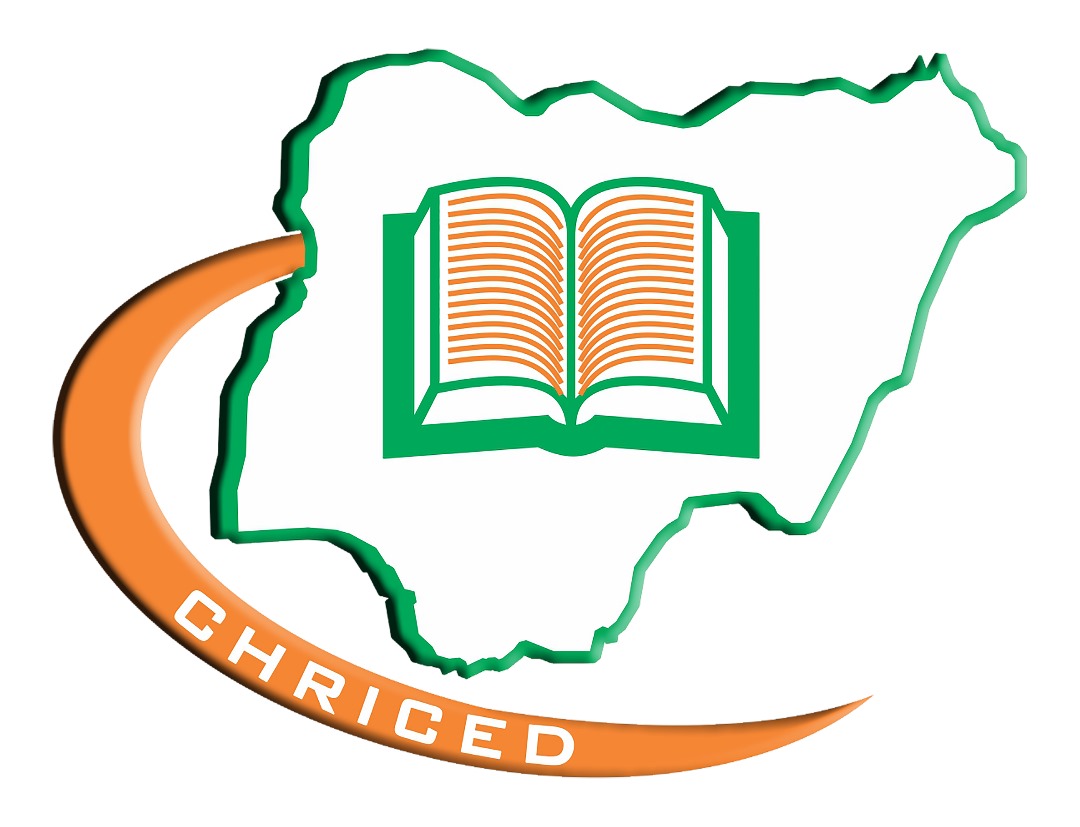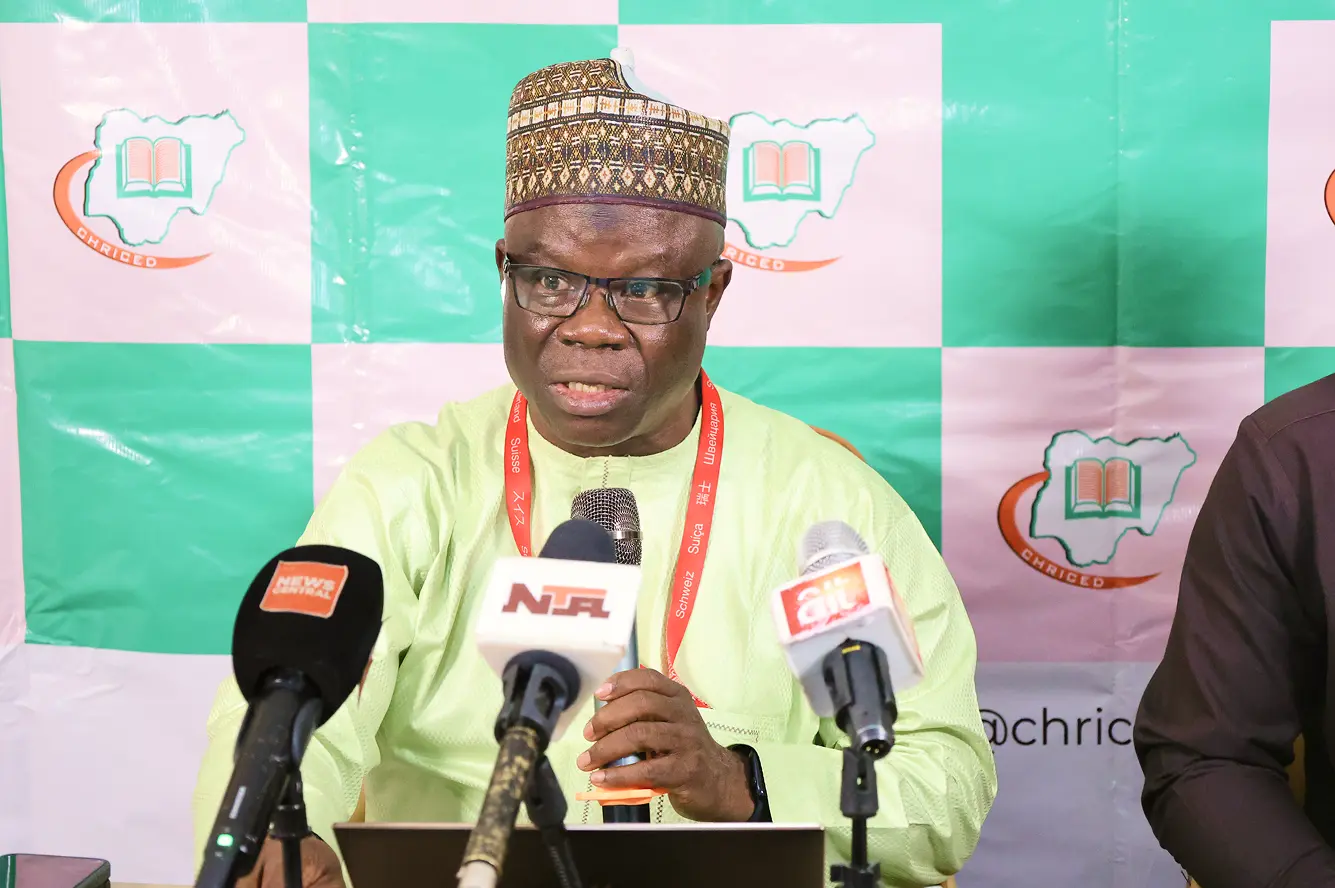
NIGERIA AND ITS SEASON OF MULTIPLE MISERIES
Thank you for taking time out of your busy schedules to attend this Press Briefing on the State of the Nation. There is no denying that Nigeria is at a crossroads, and silence in any form is neither strategic nor golden at this point. Our country Nigeria is currently bleeding all fronts, and experiencing many difficulties that have serious implications for the welfare and well-being of its citizens. Ordinary people all over the country have felt the effects of bad and poorly implemented policies, which have caused untold hardships and made citizens’ lives even more miserable than they were before. CHRICED believes that the welfare and well-being of millions of Nigerians should be the most important consideration driving all government’s policies and programs. As a result, well-meaning individuals and organizations who are aware of the implications of Nigeria’s current crisis must speak out. This is a necessary part of our patriotic duty to bring an end to the hardships faced by the Nigerian people.
The Economy
Only in December 2022, the World Bank stated unequivocally in its Nigeria Development Update (NDU), which was launched in Abuja alongside the Nigeria Country Economic Memorandum, that Nigeria is in a worsening situation, with economic performance weakening as inflation persists. According to the World Bank, “Nigeria is in a challenging and deteriorating economic situation. Nigeria’s economic performance has weakened since the previous Nigeria Development Update was published in June 2022 under the title of ‘The Continuing Urgency of Business Unusual.” Similarly, the National Bureau of Statistics (NBS) announced on Thursday, November 17, 2022, that the number of Nigerians living in poverty has risen to over 133 million. “The figure represents 63% of the nation’s population,” according to NBS.
CBN’s Half Baked Naira Redesign And Currency Swap Policy
With the above revelations and statistics from the World Bank and the National Bureau of Statistics (NBS), one would have expected President Buhari’s APC government to put on their thinking caps and roll up their sleeves to find solutions to the dire economic situation. Alas! The government, through the Governor of the Central Bank of Nigeria (CBN), Godwin Emefiele, has set out on a mission to inflict more misery and hardship on the Nigerian people.
Disturbing pictures of Nigerians in a life and death struggle to obtain the new Naira notes from banks and Automated Teller Machines (ATMs) have become commonplace across the country. While ordinary people do not have access to the new bank notes, provocative videos of partygoers spraying bundles of the new notes have surfaced on social media. Until now, the CBN and relevant law enforcement agencies have deemed it unnecessary to investigate how such large amounts of the new currency shown in those social media videos ended up in the hands of those individuals who were using them to show off, while most citizens endured long queues just to get some cash.
CHRICED finds it untenable that while the CBN keeps insisting that it has supplied the redesigned currency to banks, the new notes have hardly ever been available in banks ATMs, resulting in serious currency scarcity. The situation has deteriorated to the point where unscrupulous POS operators now charge between 20 and 30 percent of any amount their customers wish to withdraw as a fee for providing cash. Furthermore, as online banking transfers suffer glitches and record failures, the digital channels for financial transactions have become even more difficult.
The fact therefore remains that the CBN’s cash swap policy continues to impoverish many more Nigerians. When the benefits and drawbacks of the currency redesign and swap policy are considered, there is no doubt that it is a colossal failure and an unmitigated disaster. Criminals, money launderers, and vote buyers have taken advantage of the CBN system’s porous nature to conceal their illicit wealth, while ordinary citizens who require only little amounts of cash for daily survival have no access to the currency. We are in a situation where Naira is now used to buy Naira. In addition, the CBN’s unpopular policy of redesigning Naira notes is already driving honest and hardworking farmers, traders, and artisans in rural areas whose funds are all in cash into bankruptcy.
CHRICED strongly condemns the suffering and agony inflicted on millions of ordinary Nigerians in recent weeks. This travails are the outcomes of the CBN’s sloppy implementation of the currency redesign and swap policy (CBN). In a previous intervention, CHRICED warned that if the apex bank does not handle this policy carefully, it will cause unncessary hardship, particularly those in rural areas. CHRICED prediction has proven to be correct. Not only was the level of citizen sensitization for such a significant policy low, the apex bank failed to form any effective collaboration with institutions such as the National Orientation Agency (NOA) to get the important message about the currency redesign and swap across to citizens, especially those in rural areas.
From the CBN currency debacle to the fuel and Permanent Voters Cards (PVC) collection queues, which have nearly become a permanent feature of everyday Nigerian life, the elements of corruption and the absence of the rule of law are clear for all to see. CHRICED is of the view that the anti-corruption mantra, which enabled President Muhammadu Buhari and his co-travelers in the All Progressives Congress (APC) to win presidential power in 2015 and later in 2019, has now taken a back seat. Nigerians have seen massive corruption allegations ranging from oil theft to alleged disappearance of stamp duty revenue made against key State functionaries being swept under the rug. Allegations of corruption against leaders in positions of power within institutions that should be on the front lines of governance, are simply ignored and dismissed.
A case in point is the fact that for some time, CBN Governor Godwin Emefiele became a fugitive from justice after going into hiding for nearly two weeks to avoid arrest on allegations of terrorism financing made against him by the Department of State Services (DSS). It defies belief that the head of the country’s Central Bank would be subjected to such scrutiny by the nation’s secret police, and the government has not deemed it necessary to determine whether the infractions he allegedly committed are true or false. As a result, Nigeria now has as its apex bank governor, someone whose integrity and character the State itself cannot vouch for.
If the DSS, the state’s security arm, has come out to say it has damning evidence of malfeasance and has indicted the CBN Governor, but the nation’s helmsman ignores this, it demonstrates that the government at the highest level is unwilling to investigate, and if discovered, fight corruption and its crippling effects on governance. Aside from that, there have been reports that the apex bank Governor has resorted to using other arms of the security services to protect himself and avoid arrest rather than honoring the DSS’s invitation to answer and defend the allegations against him. CHRICED strongly condemns the use of public resources in this manner, which undermines the rule of law, equity, and natural justice.
It has become a disturbing pattern in the Buhari administration for various members of the armed services to clash with one another in an attempt to derail efforts to hold senior officials accountable for their actions in office. It is not surprising, then, that many officials no longer feel any need to account for their actions, especially since they know they can rely on various branches of security to protect them from arrest and prosecution. This amounts to officials granting themselves immunity that the constitution does not grant. President Buhari will be leaving the stage in a few months, and it is unfortunate that this illegal practice of using branches of the armed forces to shield government officials under investigation will be one of the bad legacies of his administration, which the incoming administration will have to address.
INEC, BVAS And The 2023 General Elections
Distinguished invited guests, ladies and gentlemen of the Press, it is 23 days to the 2023 general elections. It is yet another opportunity for Nigerians to reset the country and breathe new life into it by electing the right leaders. The elections will take place at a time when the country is facing numerous challenges. From insecurity to the turmoil in the economy and to the lack of jobs for those willing and ready to work, there are more than enough reasons for all registered Nigerians to come out in good numbers on Election Day to exercise their democratic rights. CHRICED lauds the Independent National Electoral Commission (INEC) for its recent extension to the timeframe for the collection of PVCs. However, there have been very disturbing video evidence of cases wherein Nigerians wanting to collect their PVCs were asked to part with specific sums of money to be able to get their PVCs. CHRICED unequivocally condemns these manifestations of petty corruption in the PVC collection process as documented in Enugu and Nasarawa States. While these may be isolated cases of acts of corruption by a few unscrupulous officials, it is important for the Commission to speedily cause an investigation of these infractions and ensure law enforcement bring the perpetrators to justice.
Finally, CHRICED calls on INEC to engage in more confidence building with respect to the Bimodal Voter Accreditation System (BVAS) device, which came under the spotlight at the recent Governorship Election Petition Tribunal judgement for the Osun State gubernatorial election conducted in 2022. Although the case is likely to go through the judicial system all the way to the Supreme Court, the Tribunal’s verdict on over voting raises a number of fundamental questions about how the INEC Presiding and Collation Officers oversaw the process. Some critical questions must be addressed: was there collusion by INEC officials in the polling units, which recorded overvoting as indicated by the Tribunal? If that is the case, what steps will the Commission take to avoid a repeat, especially with the 2023 general elections approaching? INEC must reflect on and take critical steps to address these issues in order to build trust and ensure free, fair, and credible general elections in 2023.
Thank you for your rapt attention.







